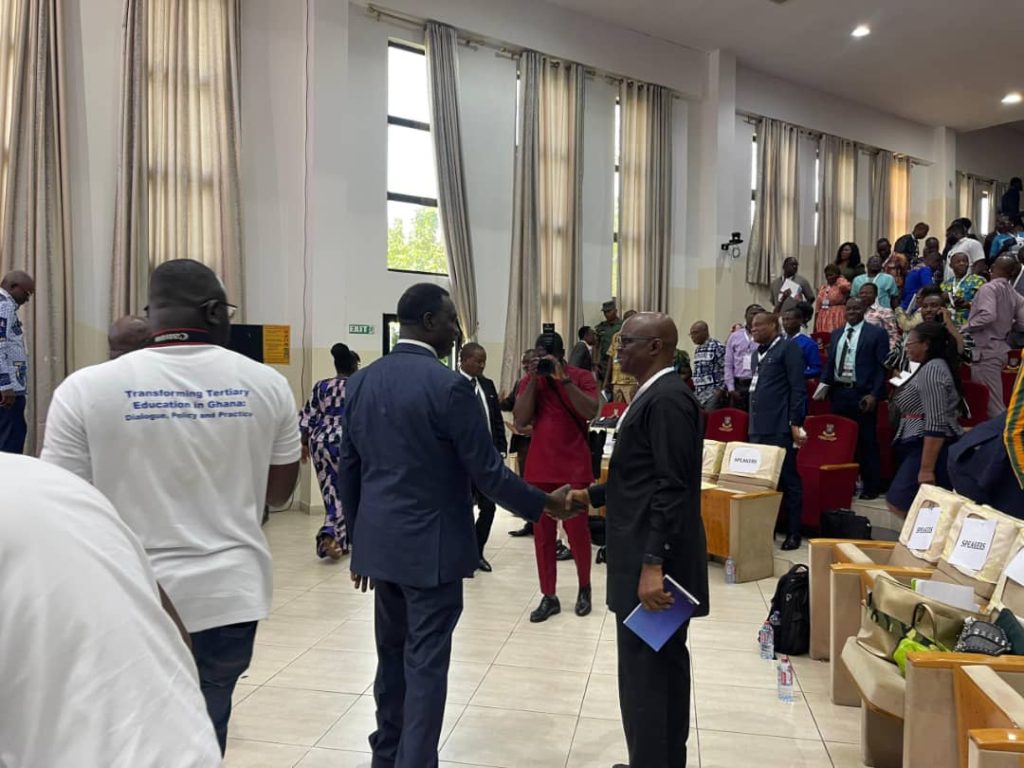By Kodjo Adams/ Ebenezer Annan
Accra, Nov. 5, GNA – Dr Yaw Osei Adutwum, Minister for Education, has urged tertiary institutions to design their curriculum to respond to emerging government reforms in second-cycle institutions.
He said the new reforms in the second-cycle institutions were technologically orientated, preparing students for 21st-century skills demand.
The Minister said this at the maiden edition of the National Tertiary Education Conference organised by the Ghana Tertiary Education Commission held in Accra.
The Conference is on the theme: “Transforming Tertiary Education in Ghana: Dialogue, Policy, and Practice.”
It underscored the relevance of bridging the gap between policy and practice in advancing tertiary education in Ghana.
The conference, which commemorates the 10th anniversary of the African Centres of Excellence for Development Impact (ACE IMPACT), is aimed at fostering collaboration, sharing of best practices and dialogue on critical issues in tertiary education.
The Minister of Education noted that new subjects introduced in the second cycle institutions as part of the reforms included robotics, engineering,
aviation and aerospace, biomedical science, and design communication technology.
He said the teaching of these subjects in high schools would require tertiary institutions to redesign the curriculum to incorporate an accelerated one for students.

Dr. Adutwum stressed that an accelerated curriculum would enable students who studied advanced courses in high school to access advanced placement in tertiary institutions.
“When students are flying and building drones in our high schools, what is going to happen when they get to the universities and sit down doing nothing because there is no practical activity happening?”
Students who are smart and sharp have the opportunity to advance themselves and do not have to come to the university to repeat the process they were doing at the high schools, “he said.
Professor Ahmed Abdulai Jinapor, Director General, GTEC, said the conference held the promise of charting pathways to improve Ghana’s tertiary education.
He emphasised that the conference would bridge the gap between theoretical and practical policy frameworks and interventions within Ghana’s tertiary education.
The Director General noted that the ideas generated from the conference would serve as a blueprint to improve Ghana’s tertiary education, stressing that it had assembled the best brain within the tertiary education landscape.
Professor Ernest Aryeteey, former Vice Chancellor University of Ghana, said the growth and improvements in tertiary education had not necessarily yielded the desired outcomes.
He noted that Governments should not simply use laws to introduce changes in universities; neither should they use laws to prevent universities from responding to societal needs.
Professor Nana Aba Appiah Amfo, Vice Chancellor, the University of Ghana, praised the organisation of the conference, stating that it would provide the platform to proactively address the challenges in tertiary education in the country.
She called for actionable policies to strengthen Ghana’s tertiary education landscape to prepare the students for the modern skills demanded by the industry.
GNA